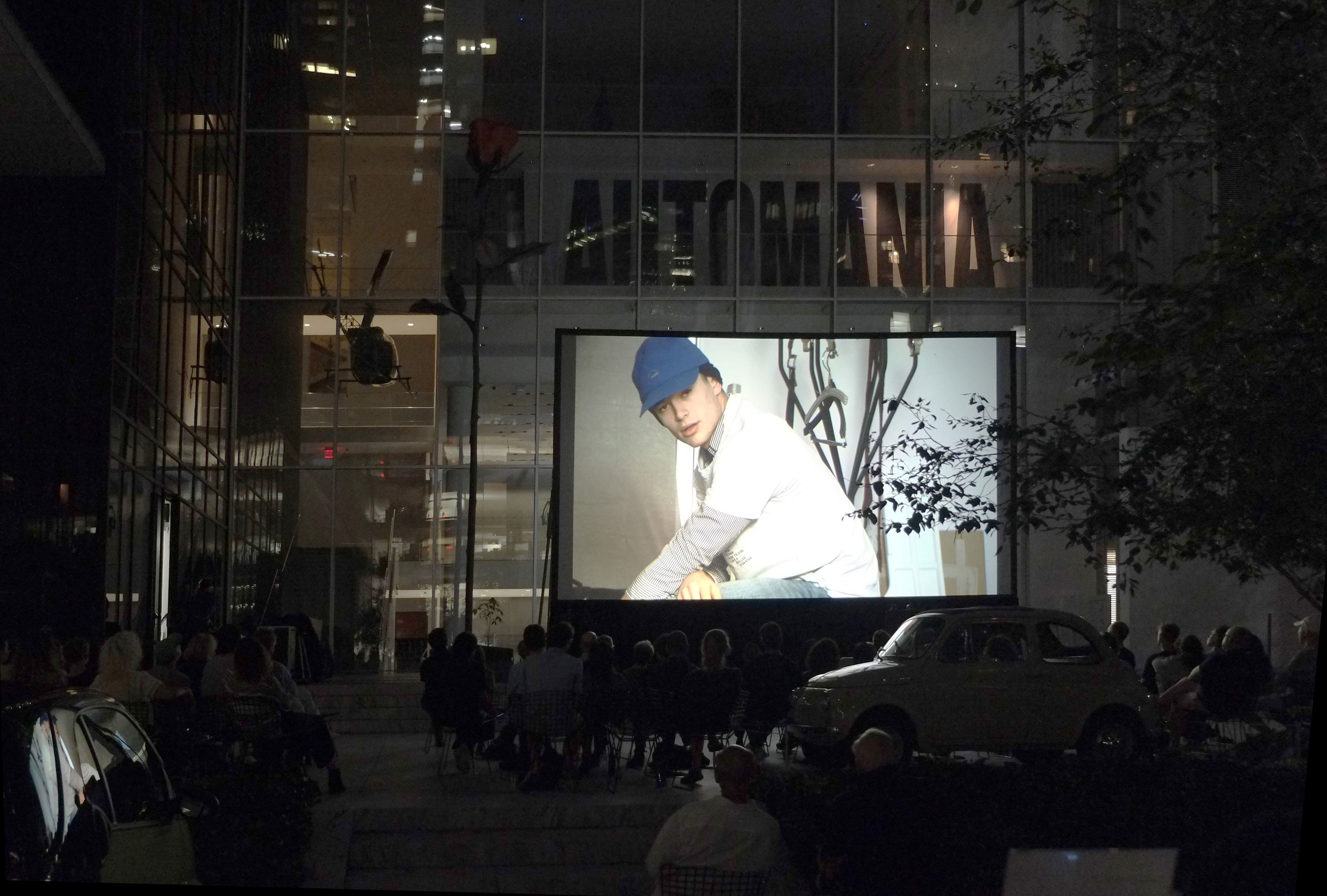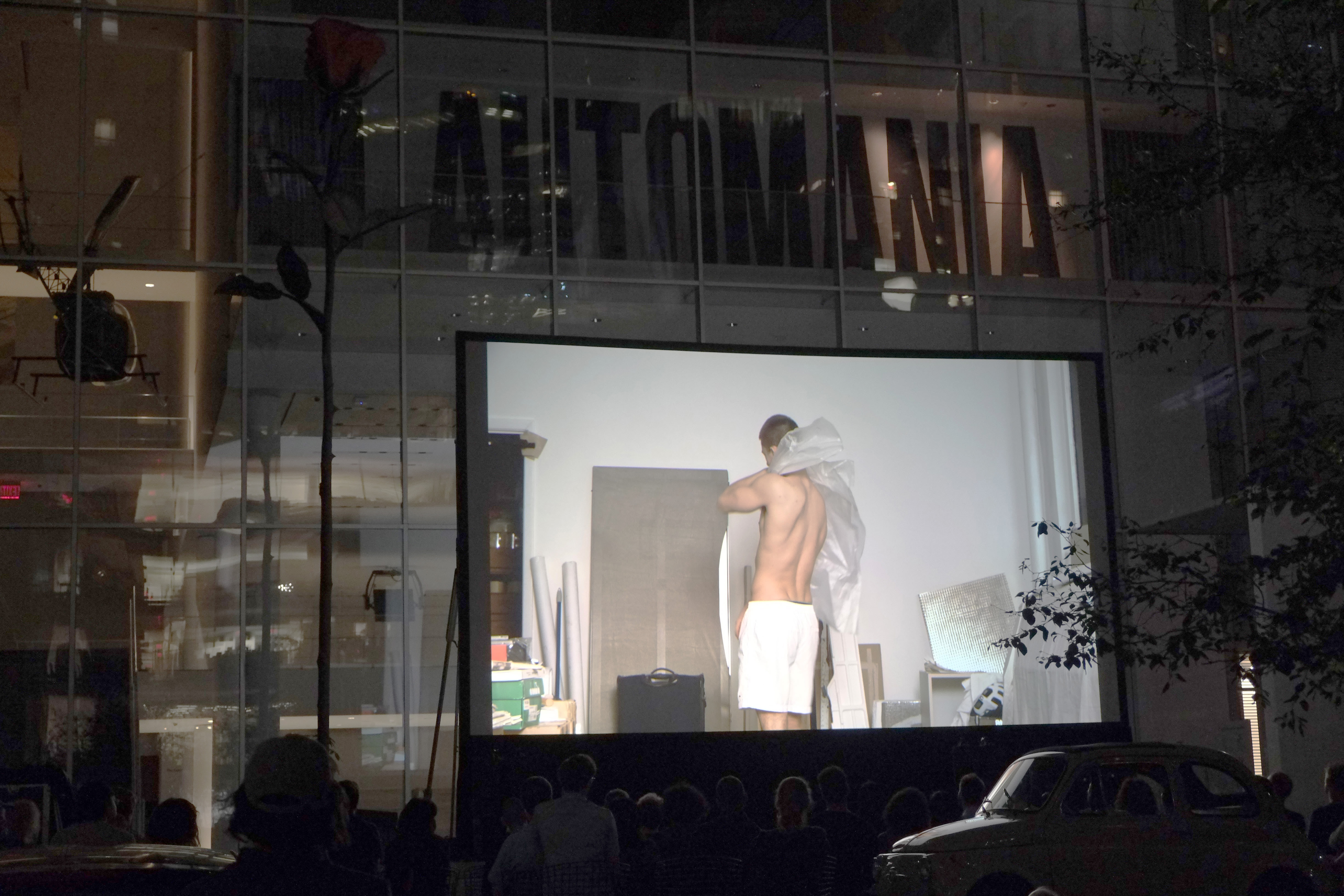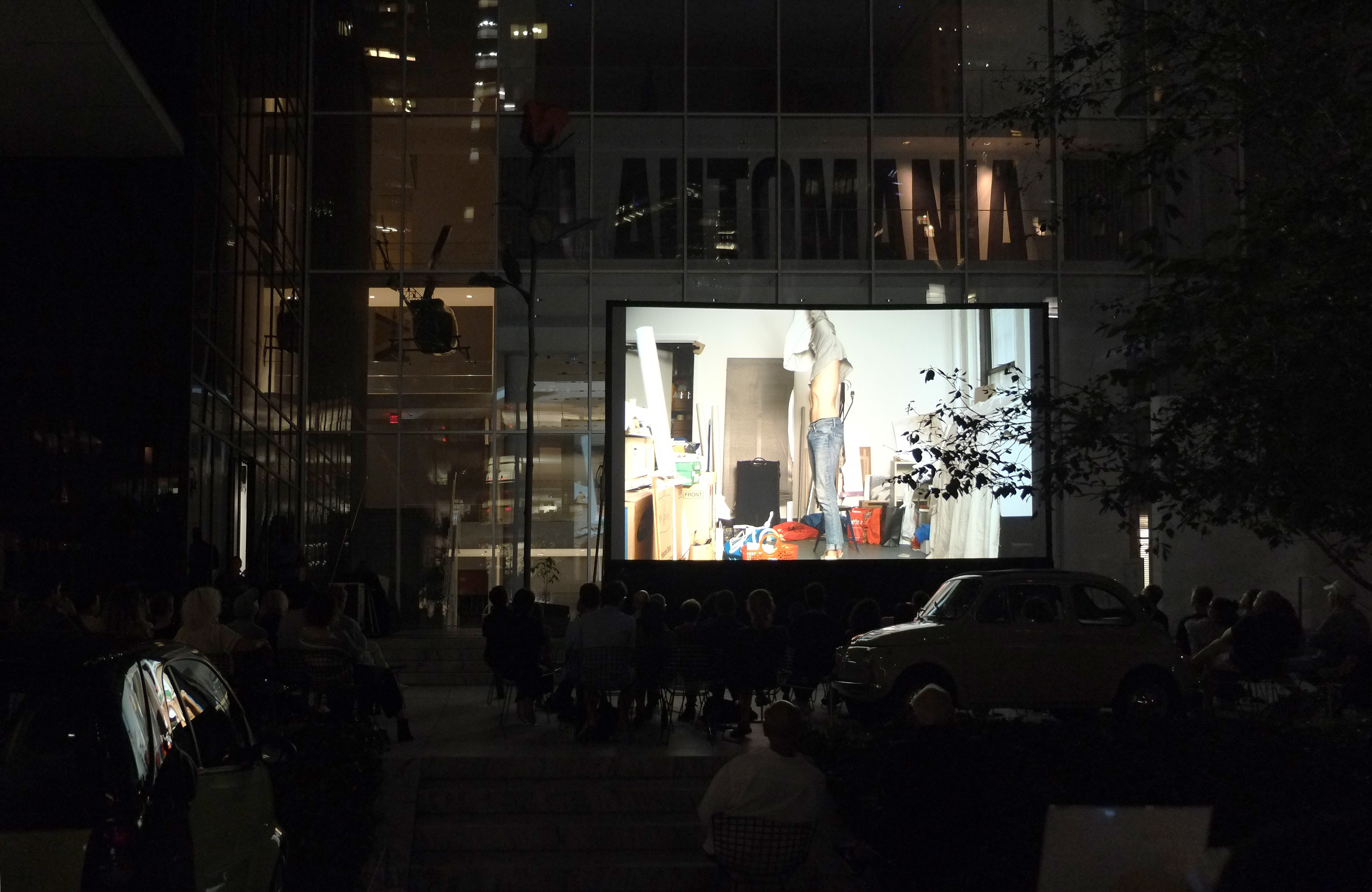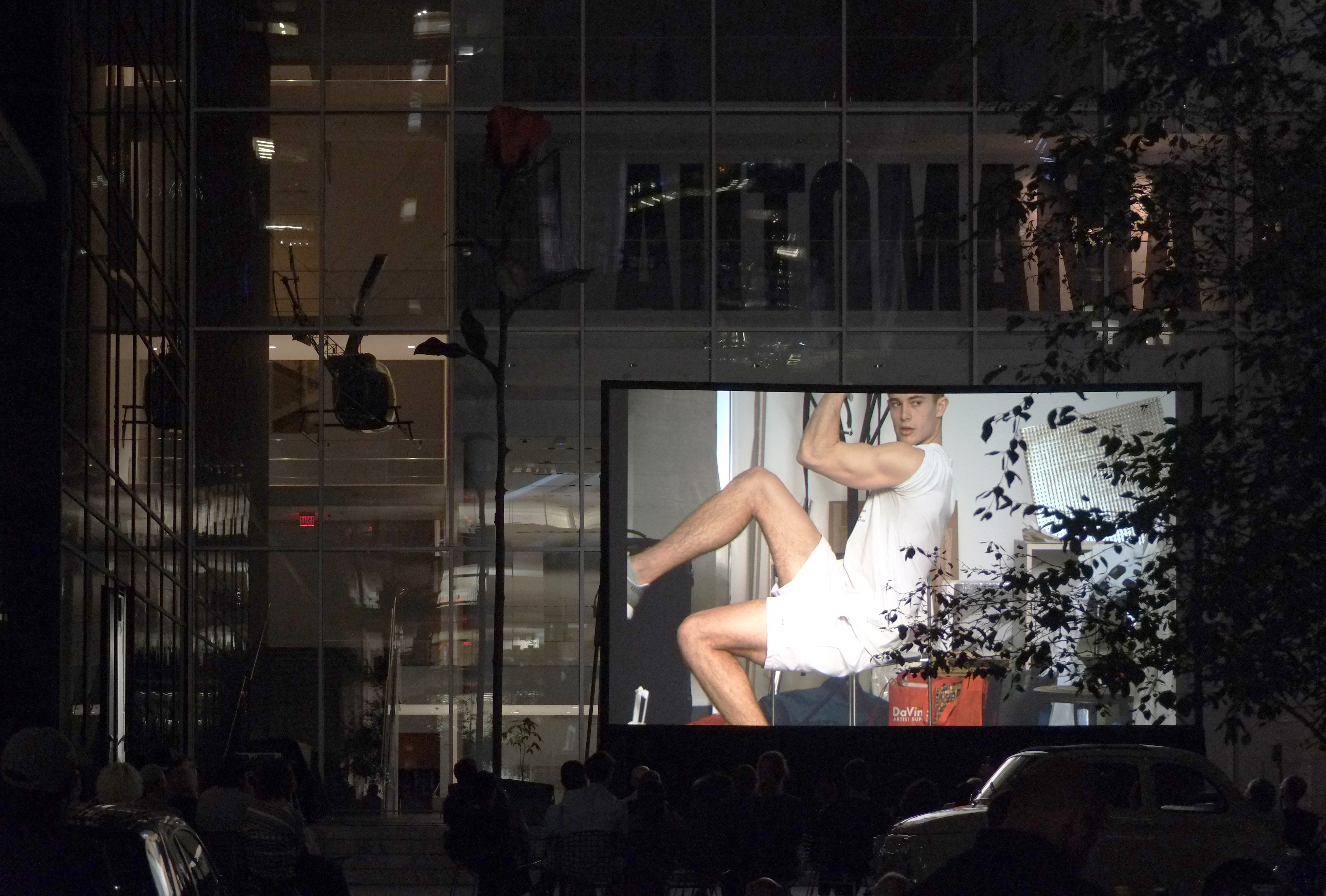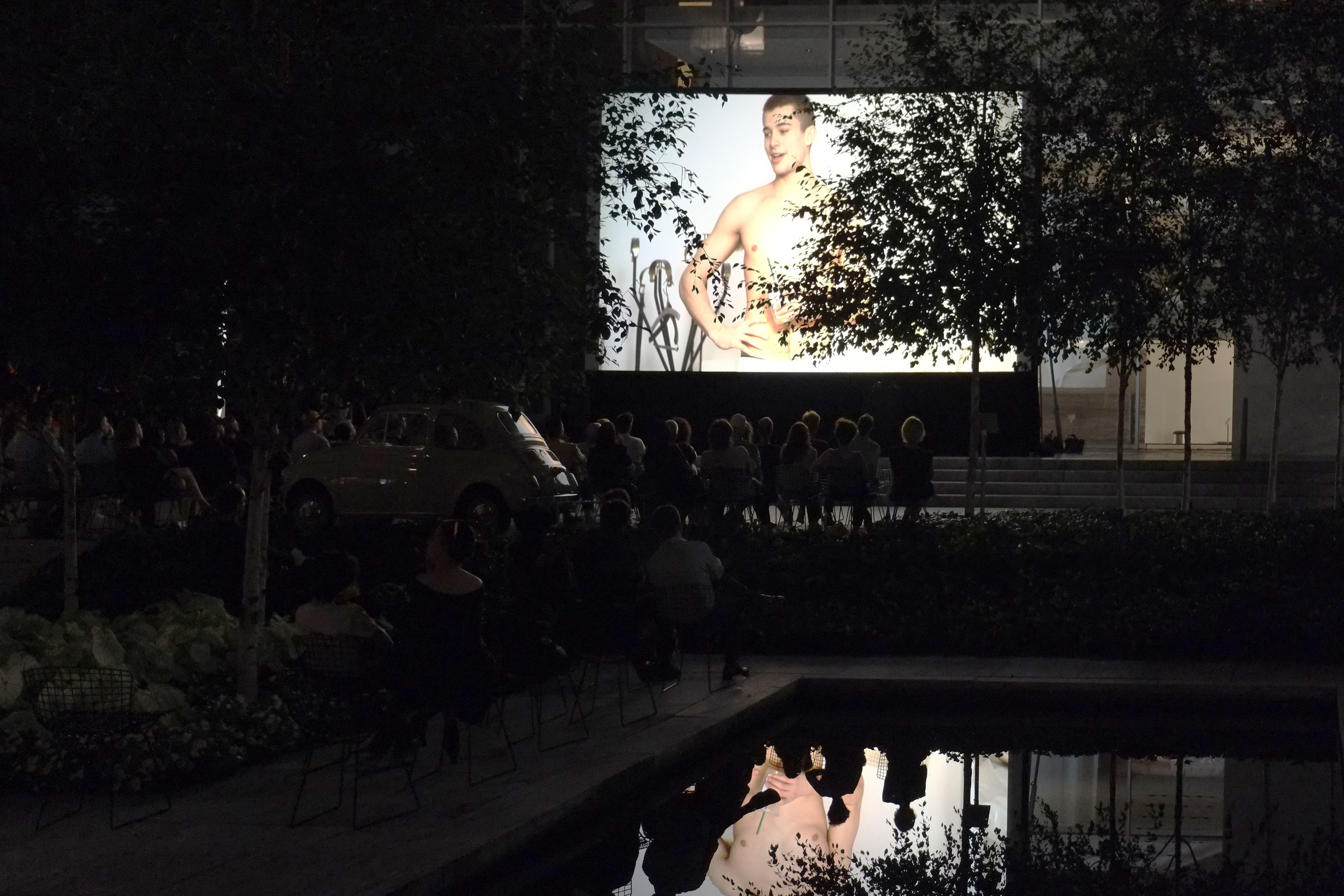Overview
Showing in its US premiere, Ken Okiishi’s most recent moving-image work is an engrossing take on the studio portrait. In tasking his real-life fitness coach with restaging social media photographs in reverse order—an embodiment of the social feed, half archive, half look book—the artist plays with notions of identity at the center of contemporary visual culture. That Okiishi’s work has long made use of re-creation only deepens his vision of today’s technology-laden psychodrama. If his turn-of-the-millennium video Death and the College Student (1999) memorably sees the artist channeling River Phoenix and Keanu Reeves, any fantasy in Vital Behaviors looks inward; in lieu of confession and projection onto cultural icons, self-image is a feedback loop generating new, desirable possibilities at the swipe of a thumb.
More a work of cinema than of influencer culture, this hourlong, meticulously paced work is at turns confounding, tantalizing, and even moving. Okiishi captures the moments in which affect approaches virtuosic performance and a young model becomes an actor. (Indeed, the star of Vital Behaviors, Brian Altemus, has since appeared in Eliza Hittman’s Never Rarely Sometimes Always, in his first screen credit.) With a sort of reciprocal training at play, the work is utterly devoid of cynicism. On the contrary, intimate and self-searching, it tackles social media artifice—even teeters on the edge—and unleashes something entirely profound.
Initially planned for April 2020, this rescheduled, expanded presentation unfolds across the Museum’s physical and digital spaces in a sequence envisioned by Okiishi, and is accompanied by a Carte Blanche program of films selected by the artist. In person, a return to cinemas offers a chance to share in a larger-than-life experience. Online, Vital Behaviors screens with Telly & Casper (2000), whose exploration of artifice, data streams, and youth culture—all filtered through the script of Larry Clark and Harmony Korine’s 1995 film *Kids*—offers deeply moving glimpses at today’s technology-inflected bodies glitching through cities and situations that, 20 years ago, could be said to feel more like a ‘website than a mise en scène.’

